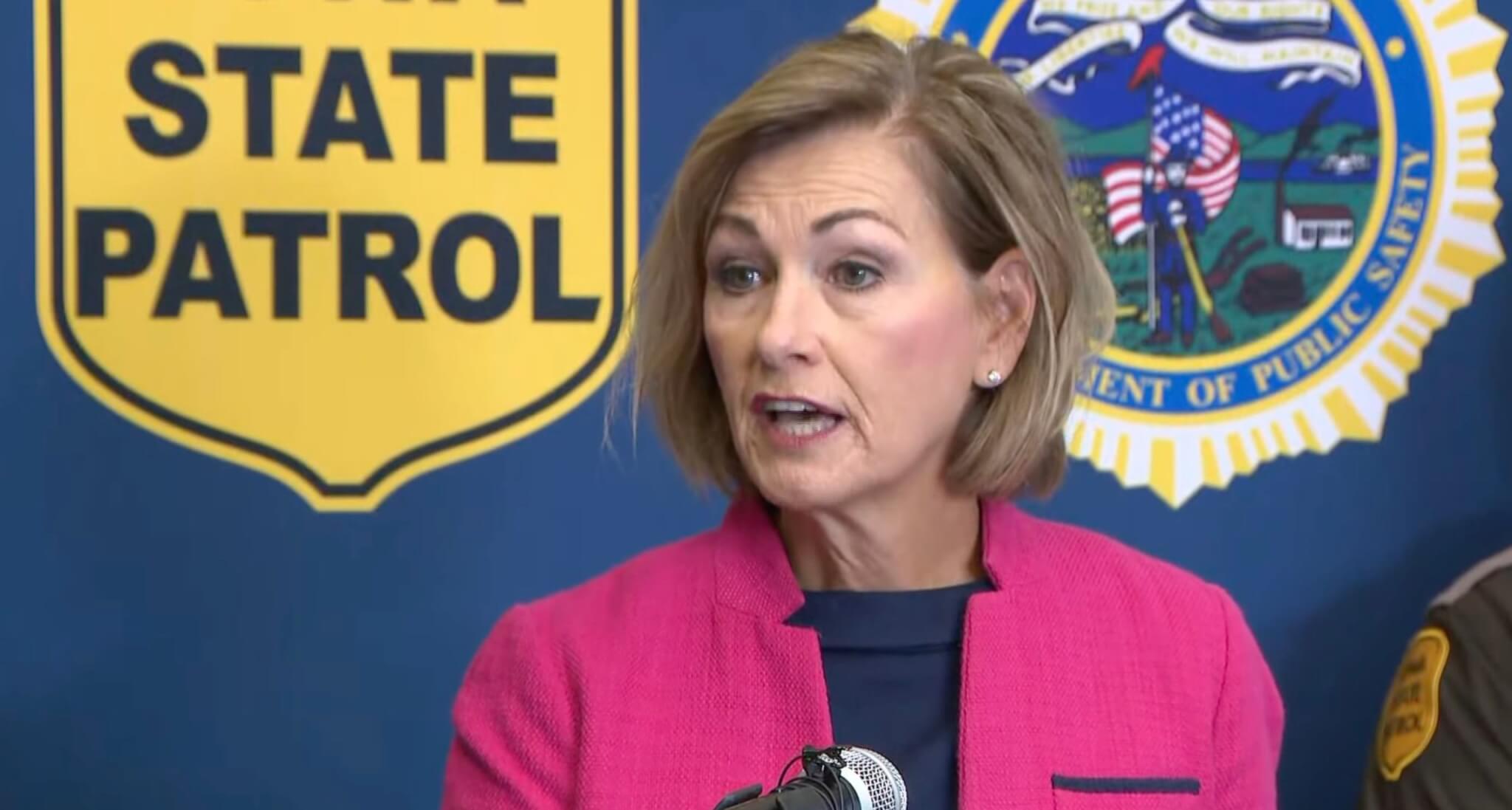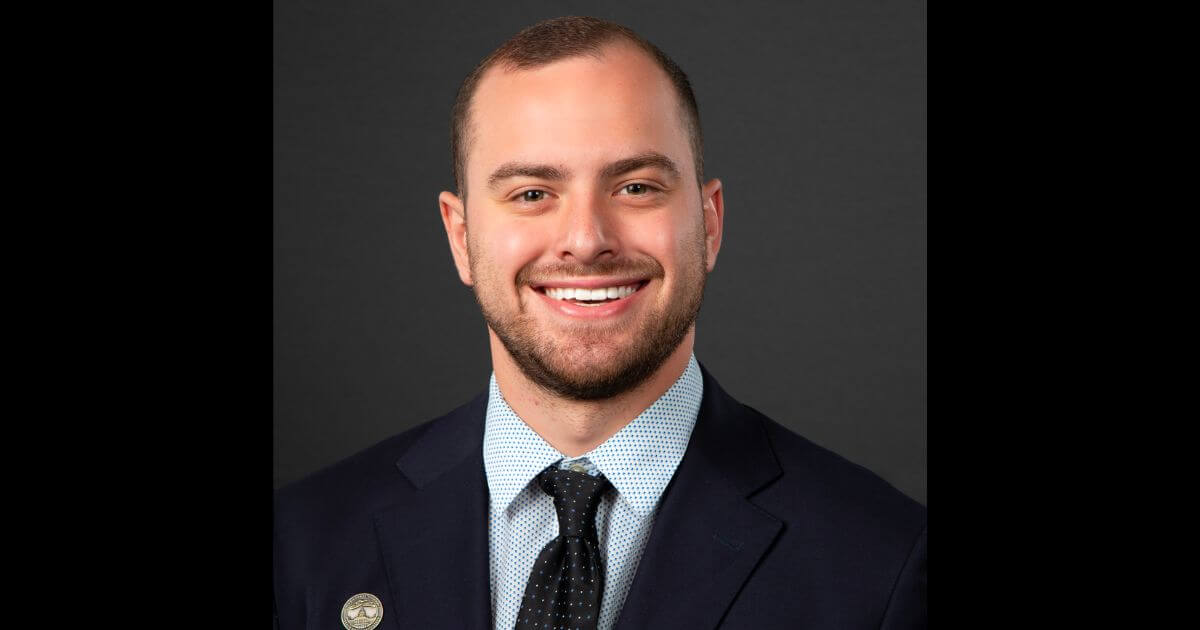
Iowa taxpayers will foot the bill for a $300,000 14-day mission to the Southern US Border that included 28 Iowa State Patrol personnel.
Gov. Kim Reynolds held a press conference Wednesday to give an update on the effort, which took place July 8-22.
Public Safety Commissioner Stephan Baynes estimated expenditure to cost about $300,000. Of that, he said $100,000 was regular salary cost, another $150,000 was for overtime costs, and the remainder covered other expenses.
Reynolds said Iowa will likely be responsible for the money, though she said there’s potential for federal funds.
“This wasn’t a decision that I entered into lightly,” Reynolds said. But she said the outcomes were worth it, and it might not be the only time Iowa sends forces. “We’ll continue to monitor the situation on the border, continue to work with Texas Gov. Abbott as well as Gov. Ducey and we’ll re-evaluate that going forward,” she said.
[inline-ad id=”0″]
Her decision wasn’t taken well by Democratic leaders in the state.
Unbelievable. Iowa taxpayers footing the bill for Texas? And with 29 Iowa State Troopers in Texas, that means Iowans are less safe with fewer troopers on the road here. https://t.co/CRpDfuYqiJ
— Rep. Jennifer Konfrst (@KonfrstForHouse) July 12, 2021
We’re calling on @IAGovernor to honor our proud history of being a state that welcomes those seeking a home.
No matter who you are or how you got here, we’re all Iowans at the end of the day and we should embrace a roadmap to citizenship for our friends and neighbors. pic.twitter.com/q1O3JpmmTP
— Iowa Democrats (@iowademocrats) July 28, 2021
Reynolds announced on June 24 she was sending Iowa State Patrol troopers to the US Southern Border near Del Rio, Texas.
The area is more than 1,000 miles away from Iowa’s capital city.
The main justification for the deployment, Reynolds said, is the increased amounts of trafficked drugs like fentanyl and methamphetamine in Iowa, both of which were seized at record levels this year.
This year, 87 percent of all opioid deaths have been attributed to fentanyl and other synthetic drugs. Last year, almost 20 percent more Iowans died of drug overdoses than in 2019.
[inline-ad id=”2″]
On Tuesday—the day before her press conference—Reynolds also blamed rising COVID-19 cases on immigrants crossing the border, saying that none of them are vaccinated and they’re spreading through the country.
Critics responded to that, too.
The role of Gov. is to prioritize the people of Iowa not fear monger nat’l narratives. Reynolds has concerns about unvaccinated immigrants, interesting since there was no concern about maskless unvaccinated state legislators here in IOWA! https://t.co/oCKr3b1V5a
— Ras Smith (@rasforiowa) July 27, 2021
Statement: pic.twitter.com/iTdSa32mRh
— Zach Wahls (@ZachWahls) July 27, 2021
Reynolds blamed the migrant surge on inaction from the federal government.
“We’ve made it very clear that we feel that this is a federal responsibility that is their role to secure the Southern Borders,” Reynolds said. “But because they’re not, states are stepping up and doing that.”
[inline-ad id=”3″]
But that’s not quite true.
In March, the US Department of Homeland Security released a statement about the surge in migrants at the border, citing reasons such as extreme violence, corruption, and people facing the fallout from hurricanes.
In June, Republican Govs. Greg Abbott of Texas and Doug Ducey of Arizona invoked an Emergency Management Assistance Compact. The compact allows states to assist each other in times of disaster or emergency. Both governors declared emergencies and activated their National Guard troops.
The Texas Department of Public Safety previously confirmed out-of-state troopers can’t enforce Texas laws.
Lt. Chris Olivarez w/ the Texas Dept. of Public Safety, tells our @VanessaKENS5 about the duties and authority Iowa troopers have in Del Rio, Texas. He says the out-of-state troopers can't enforce Texas laws. They're working under the umbrella of Texas DPS. @weareiowa5news pic.twitter.com/PoyRvGfNAd
— Sarah Beckman (@SarahBeckman3) July 20, 2021
Abbott and Ducey’s decisions were likely motivated by politics, as other Southern Border states governors have not taken similar action. Michelle Lujan Grisham, New Mexico’s Democratic governor, has not declared an emergency, nor has California Gov. Gavin Newsom, who is also a Democrat.
The White House released a statement Tuesday about its border plans going forward, including better-defined systems for processing migrants.
[inline-ad id=”4″]
The Iowa State Patrol had three main goals, according to Capt. Mark Miller, who led the mission in Texas: protect citizens, ensure the safety of the immigrants and disrupt crime.
“Did we accomplish these goals? Yeah, I believe we did. In fact, I’m confident that we did,” he said.
According to Miller and Baynes, the troopers were busy while on assignment and performed a number of tasks.
The Iowa State Patrol troopers provided more visibility of law enforcement presence and were paired up with local officers.
[inline-ad id=”5″]
Troopers also patrolled neighborhoods to deter break-ins, property damage, and vehicle theft. There had also been a lot of high-speed chases, on and off back roads.
To ensure immigrant safety, officers monitored river crossings, often helping people out of the water. Some searched the deserts for people, bringing them in from extreme heat.
They also provided ready-to-eat meals, water, and medical care while immigrants waited for Border Control agents.
Tactical troopers handled weapon and drug seizures, also interrupting human trafficking efforts. The most common drugs seized were methamphetamine and fentanyl.
by Nikoel Hytrek
07/28/21
[inline-ad id=”1″]
Support Our Cause
Thank you for taking the time to read our work. Before you go, we hope you'll consider supporting our values-driven journalism, which has always strived to make clear what's really at stake for Iowans and our future.
Since day one, our goal here at Iowa Starting Line has always been to empower people across the state with fact-based news and information. We believe that when people are armed with knowledge about what's happening in their local, state, and federal governments—including who is working on their behalf and who is actively trying to block efforts aimed at improving the daily lives of Iowan families—they will be inspired to become civically engaged.


Lanon Baccam wins 3rd District Dem primary, will face Zach Nunn
Baccam defeats Melissa Vine to challenge Republican incumbent Lanon Baccam defeated Melissa Vine in Tuesday’s Democratic primary for Iowa’s 3rd...

Hardin County man running for office as Trump-loving Democrat to local party’s dismay
Brad Rewoldt, who recently changed his party affiliation from Republican, says his support of Trump will probably 'piss off' Democrats There is a...

Scheetz: Tax cuts for all Iowans, not just the wealthy
State Rep. Sami Scheetz says all Iowans should benefit from tax cuts via a sales tax reduction As a state representative, my job is to serve the...

Kalbach: What Iowa Republicans focused on during legislative session
Our state legislative session finished up towards the end of April, and I’m glad it’s over! From further de-funding and privatizing our public...

Advocates file suit to stop Iowa’s ‘unconstitutional’ immigration law
Immigration advocates filed a federal lawsuit Thursday to stop Iowa’s new immigration law—SF 2340—from taking effect arguing that the legislation...

Iowa Republicans make outlawing gay marriage key 2024 campaign priority
Iowa Republicans have made outlawing gay marriage a key goal in their 2024 party platform. During the Iowa GOP’s 2024 state convention on Saturday,...





